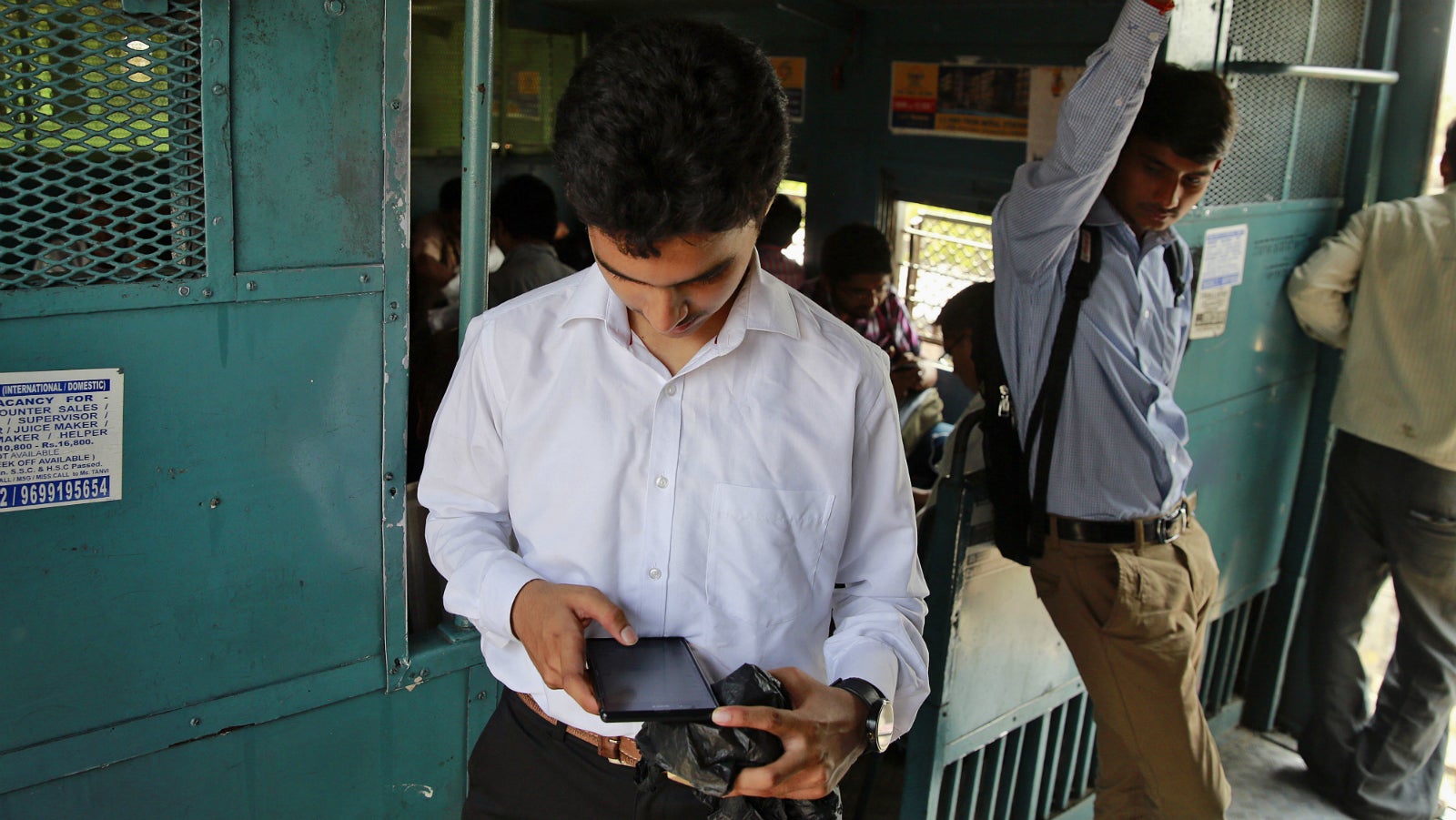Suresh Prabhu’s budget: The 163-year-old Indian Railways is now wooing startups
Narendra Modi’s affection for India’s fledgling startup ecosystem is well known.


Narendra Modi’s affection for India’s fledgling startup ecosystem is well known.
From introducing the ”startup India, stand up India” slogan during the Independence Day celebrations last year to his full-fledged Startup India Action Plan to encourage entrepreneurship, the Indian prime minister is the new champion of startups.
Now, that enthusiasm is evident at the 163-year-old Indian Railways.
Today (Feb. 25), the word “startup” made a surprising appearance in railway minister Suresh Prabhu’s speech. Presenting his second railway budget in the Indian parliament, Prabhu announced that the national transporter will provide grants to startups to innovate—and the 76-year-old businessman Ratan Tata will be one of its mentors.
Tata has emerged as a one-man venture fund who has invested in at least 25 startups, including Snapdeal, Paytm, Zivame and Urban Ladder, since he hung up his boots as the chairman of Tata Sons in 2012.
“We are setting aside a sum of Rs50 crore for providing innovation grants to employees, startups, and growth-oriented small businesses to support internal and external innovation,” Prabhu said in his speech.
Prabhu’s plan is to find solutions to problems facing Indian Railways through an annual “innovation challenge.” In it first year, the “innovation challenge” will focus on solving some critical issues, such as low-level platforms, coach capacity, and digital capabilities at stations.
This initiative would be administered by an “innovation committee” that will include investors, representatives from the National Academy of Indian Railways, the Railway Board and Kayakalp—the innovative council of Indian Railways, which is already headed by Tata.
The railways will also set up innovation labs at all its workshops to support creative innovation by its own staff.
Railways R&D
Indian Railways—first built under British colonial rule—is the world’s fourth largest railway system. Under a single management, it is the largest network. This gigantic organisation now plans to focus on its own research & development (R&D), for which it will set up a separate body, Prabhu said.
This body will be called the Special Railway Establishment for Strategic Technology & Holistic Advancement (SRESTHA). It will be staffed with scientists and railway experts and will focus on long-term research.
So far, the Research Designs and Standards Organisation (RDSO) is the railways’ only R&D organisation. It works as the technical advisor to the Railway Board. ”RDSO will now focus only on day-to-day issues, while SRESTHA would drive long-term research,” Prabhu said.
Soft assets
With a daily ridership of over 13 million people, Indian Railways gathers over 100 terabytes of passenger data every year. Prabhu now plans to make money from this “soft asset.”
“We are exploring the possibility of monetising our data, software and some of the free services provided by Indian Railways such as PNR enquiry, currently being commercially exploited by other players but at the same time ensuring that no compromise to customer privacy is made,” he said.
Indian Railways also plans to monetise the Indian Railway Catering and Tourism Corporation (IRCTC) website—one of India’s most visited portals.
Designed by India’s largest IT company, Tata Consultancy Services, IRCTC has 25 million registered members. It holds around 60 servers, and during peak hours, around 80,000 transactions are made on the portal.
In March 2015, the government began working on the idea of monetising the site. It tied up with e-commerce major Amazon to add a “shop on Amazon” tab on the homepage.
Tinder for trains
The railway minister is also following Modi’s lead by focusing on social media.
Like several private companies, Indian Railways engages with passengers through social media for feedback, providing medical care, information on safety, and to monitor cleanliness. This is helping the railways motivate its staff.
“Alok Tiwari, an inspector in the Railway Protection Force, recently deputed to the social media cell of the Railway Board, shared his sentiments. He is responsible for taking action on passengers’ requests for help on social media. He said that for the first time in his professional career, he has realised how his little actions were making a huge difference in passengers’ lives. He felt enthused and proud to be part of Indian Railways,” Prabhu said.
Modi’s love of mobile apps became known when he became the first Indian prime minister to have a personal app. The BBC News had described his app as “Tinder for good governance.”
Indian Railways, on its part, will integrate all its online offerings into two mobile apps: one dealing with all ticketing-related issues and the other for receipt and redressal of complaints and suggestions related to its services.